NHS at 75: Still caring from cradle to grave
- Published
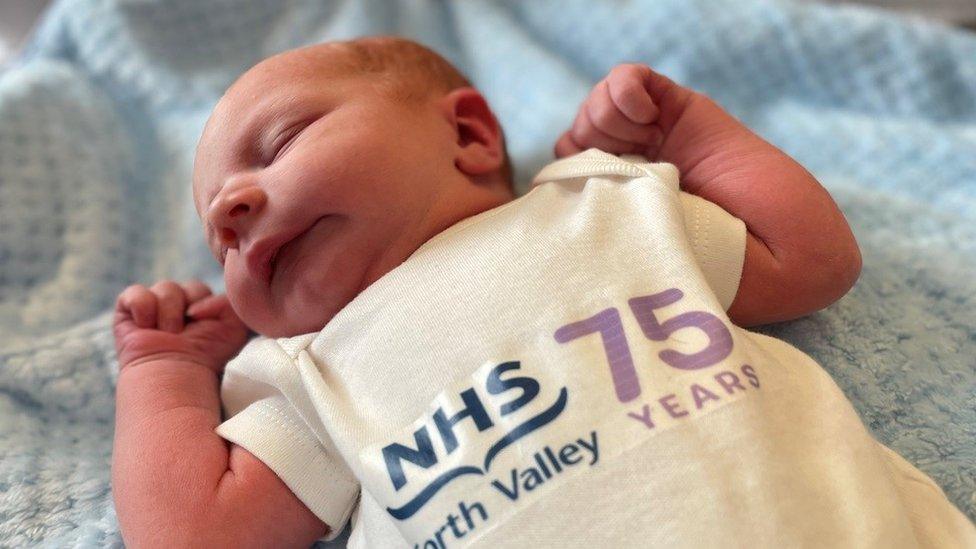
Carter Love was born at Forth Valley hospital weighing 7lb 9oz
When the NHS was launched 75 years ago this week its founding principle was providing healthcare free at the point of access from "the cradle to the grave".
Carter Love's first interaction with the health service was at Forth Valley Royal Hospital in Larbert, where he was one of five babies born on the morning we visited.
At just two hours old, Carter had already stolen the heart of his big sister, Avery.
The connection was instant as she walked in to the maternity ward to meet her baby brother for the first time.
As she cautiously approached the bed, Avery snuggled into mum, Louise, as she looked at Carter and offered up a blue cuddly toy as a gift.
Louise, 33, attended regular check-ups during her pregnancy and turned to doctors for reassurance when she experienced reduced movement in the lead up to Carter's birth.
"It's really stressful, hormones are all over the place and it's emotional. So when you come here and see a friendly face, it's really reassuring.
"From start to finish here, and with the community midwives, I can't fault them."
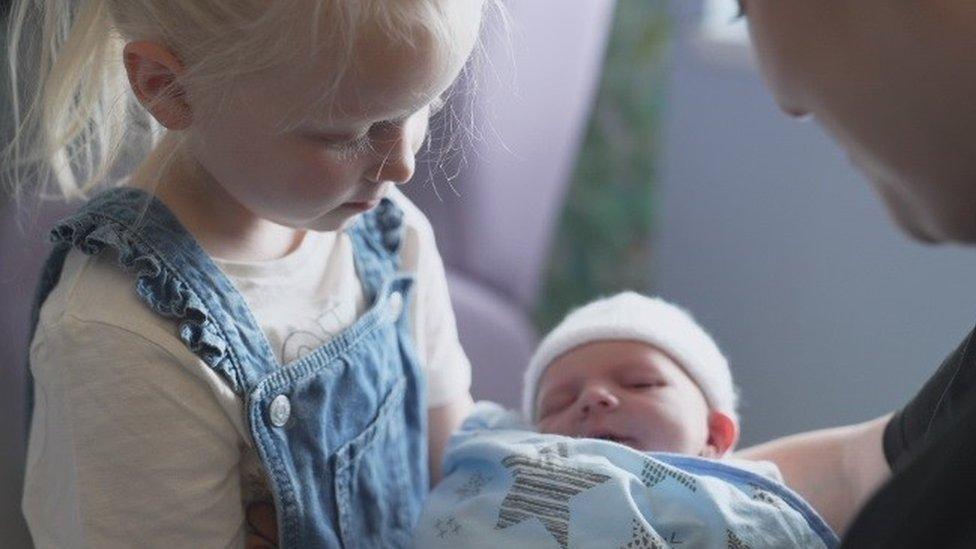
Avery, 4, meets her brother Carter for the first time
Throughout the morning, Louise and husband Mark are joined by family members who have travelled to the hospital to meet the new arrival.
They are cared for by midwife team leader Julie Guest, who has worked in the health service for more than two decades.
"Since being at school this is all I wanted to do," said Julie.
"This is the loveliest part, being involved in the start of a family and seeing a unit come together.
"We've got a wonderful NHS. As midwives we come together to make sure we are looking after our mums and babies. It's the envy of the world."
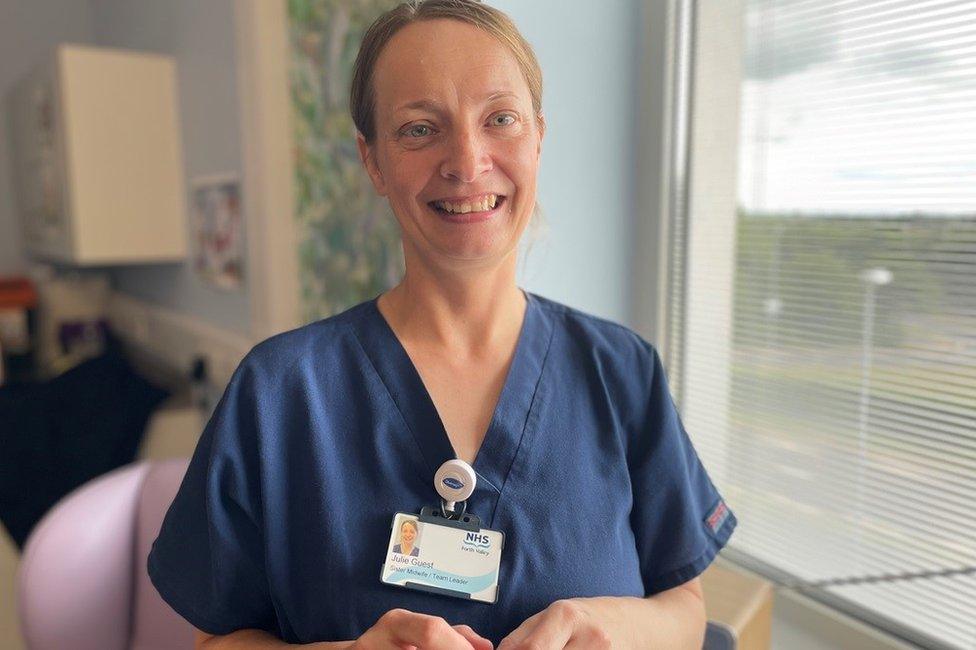
Midwife Julie Guest has worked in the NHS for more than 20 years
Within the first few hours of delivery, Carter is given a full check-up at the hospital. He is a healthy size, weighing in at 7lb 9oz (3.43kg), and already shows signs of having a good appetite as he takes a bottle, cradled in his mum's arm.
By the end of the day Louise, Mark, Avery and Carter are given the green light to head home and begin their journey as a family of four.
Louise said: "I've been really lucky that I haven't had much interaction with the NHS other than giving birth twice, so I feel really blessed in that respect. But I can't thank the NHS enough for everything they've done helping me to bring Avery and this wee one into the world."
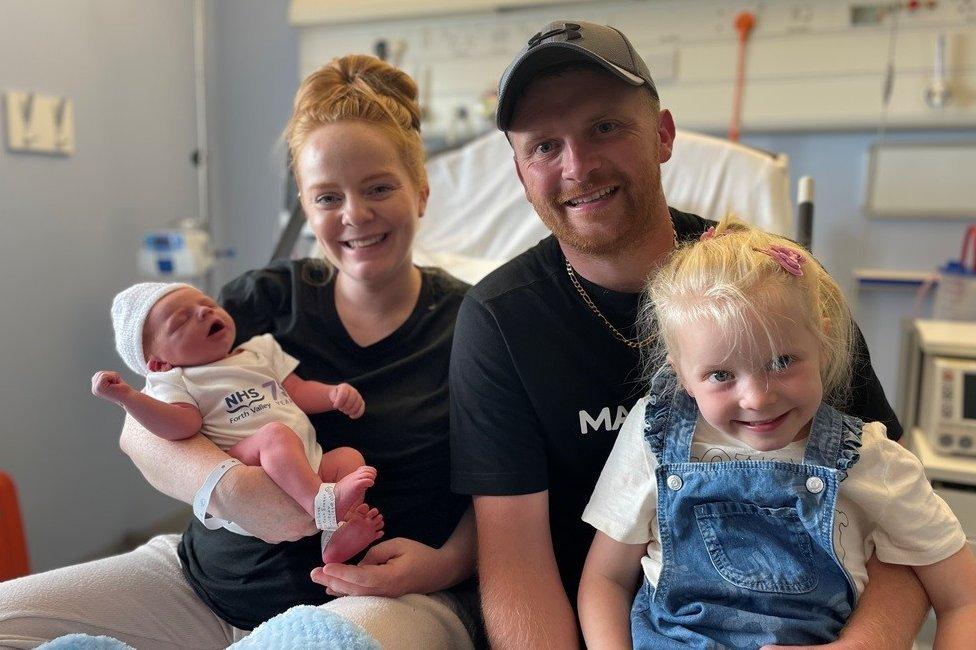
Louise and Mark Love with daughter Avery and newborn Carter
But some of us will require more care and support from the NHS throughout our lives than others.
Karen Watson, from Nairn, was just 34 when she was first diagnosed with cancer. She had no family history of the illness and had no pain or symptoms, but one day she felt a lump and went to see her GP.
Within the space of a week she had been sent for a biopsy and was called back to have the tumour removed the next day.
Following a few years of chemotherapy and radiation, the mother-of-two was given the all-clear and completely changed her approach to life.
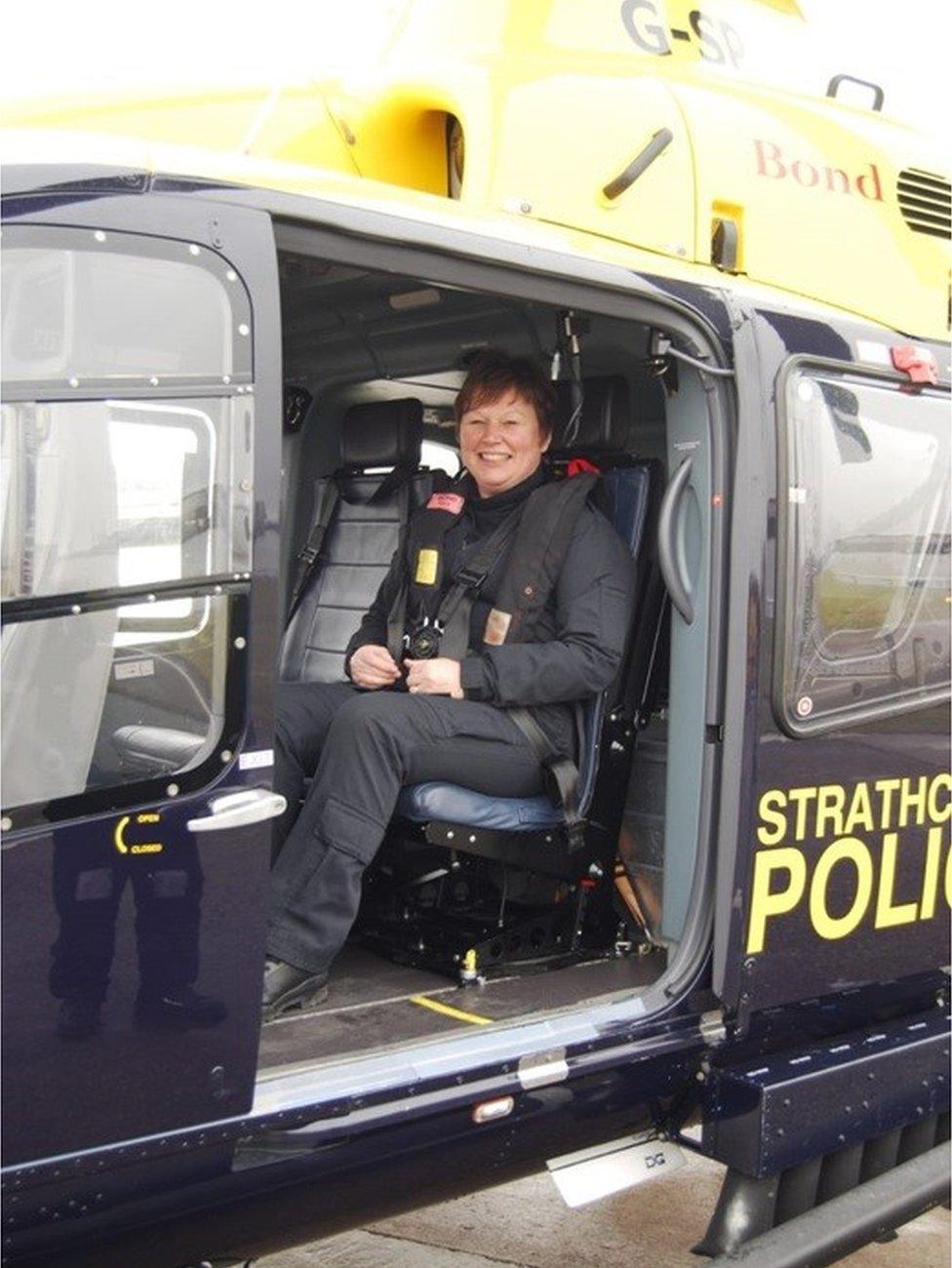
Karen joined the police in 2008
"I was healthier than ever when I hit my 40s and in 2008 I joined the police, at the age of 45," she said.
"It was a really good time in my life. I ran a half-marathon, we did 10k.
"I was watching my children grow up and my husband and I used to go to Europe on our motorbike - and we did that every year for about 10 years."
In 2013 Karen was out on a walk when she began having trouble breathing. She went to the GP to get it checked and was sent for an X-ray. She was diagnosed with secondary breast cancer in both lungs.
Reflecting on that time, Karen said: "Life changed almost immediately then because of my breathing. I had to resign from the police."
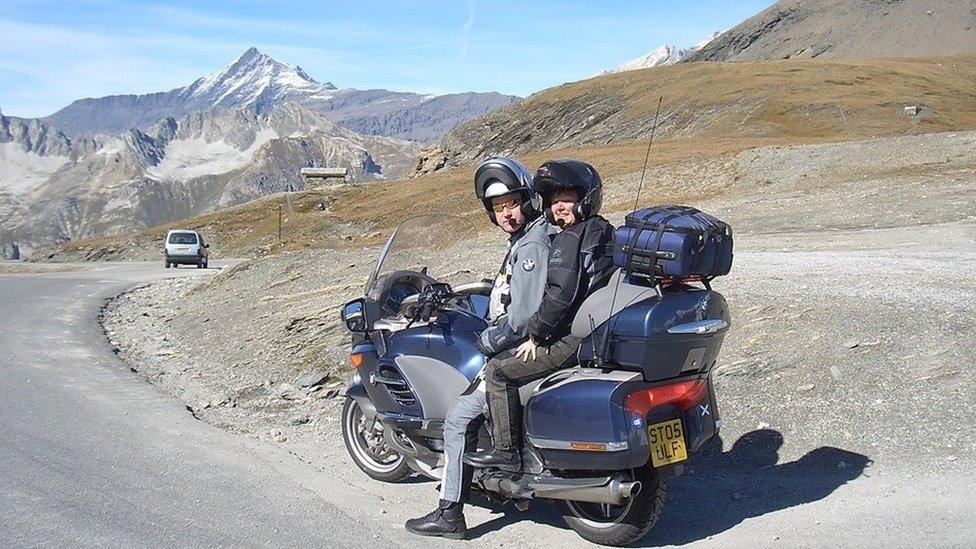
Karen and husband Stuart on a motorbiking holiday across Europe
Ten years on, Karen is still continuing to receive treatment for her cancer which has spread to her spine and her skin.
She now goes for monthly check-ups and injections with her GP and is on four-weekly cycle of treatment at Raigmore Hospital in Inverness.
"I feel thankful to still be here and a lot of that is down to the treatment available," said Karen.
Now a grandmother, Karen gets emotional support, and more importantly friendship, from a weekly workshop she attends at the city's Highland Hospice.
The charity-run organisation is partially-funded by the NHS and received more than 650 referrals to its services last year.
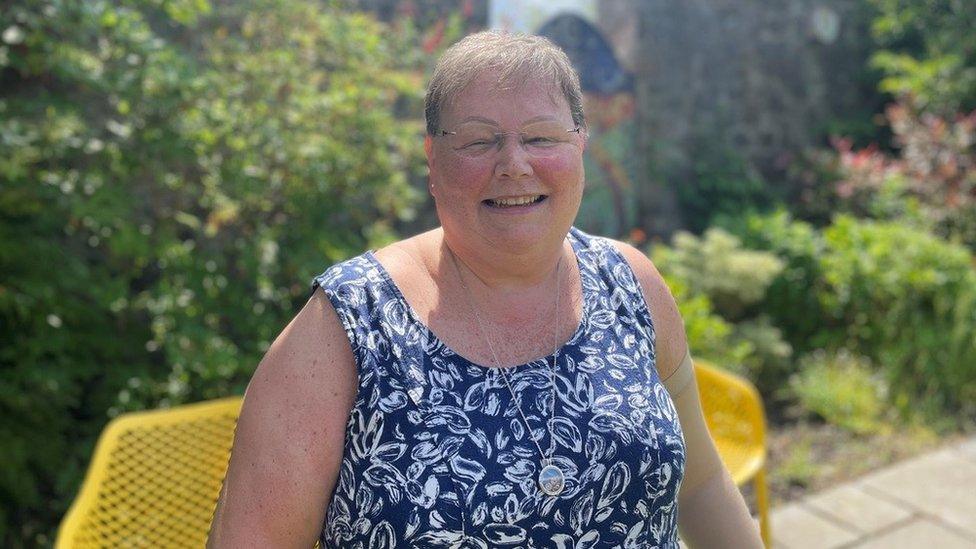
Karen has been attending classes at the Highland Hospice for six years
"When somebody first suggested to me to come to the hospice, I said "absolutely not, the hospice is where you go to die"'. I was not ready at the age of 53, 54 to die.
"But having come along and experienced it weekly for six years now, it's not about dying - it's about living."
The centre has a 12-bed in-patient unit, but also offers rehabilitation, workshops and physiotherapy.
Karen said: "Being diagnosed with a life-limiting illness is scary, but I am beating the odds. I've been very lucky to have a slow-growing cancer and although it is spreading I am still able to lead a good life.
The 60-year old is now awaiting the results of her latest tests with her oncologist this month, and hopes to travel across more of Europe with her husband, Stuart, if doctors give her the go-ahead.
Thinking about the importance the health service has played her life, Karen said: "It means everything to me. It's the reason I'm still here. I'm really just grateful for what they've done for me and I do believe that what they have done has helped keep me here today.
"I've been able to see my children grow, and my granddaughter, and a big part of that is all down to the NHS."